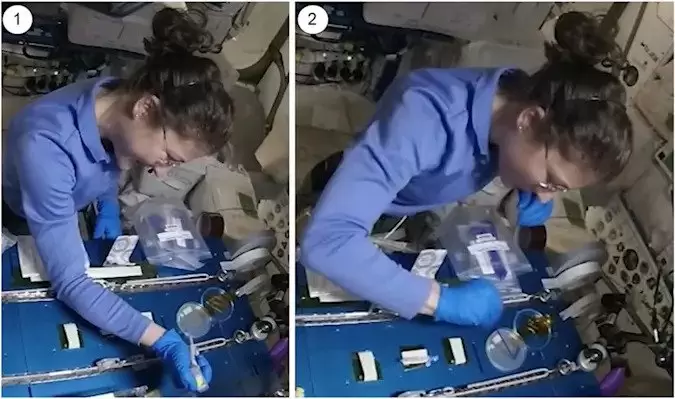Astronaut Christina Koch and scientists have successfully demonstrated CRISPR-Cas9 in space for the first time, as part of a new technique to damage DNA and study how it repairs it in microgravity. According to the researchers, “technical and safety concerns” had hindered previous studies like this. However, it is predicted that this step taken now may be the key to long-term space travel.
The Way To Mars Has Been Opened
The experiment produced a particularly damaging double-stranded DNA break in a yeast cell culture aboard the International Space Station. Koch completed the test long before that. But the findings weren’t available until last week. And it just came out recently.

In addition, it should be noted that most of the test materials reached the ISS in May 2019.
The new approach is said to pave the way for other research on DNA repair in space. With enough work, scientists hope they can replicate the genetic damage from ionizing radiation, not to mention the other effects of long-term spaceflight.
It is thought that this could help NASA and other institutions develop technologies that protect their astronauts and make deep space exploration practical. The CRISPR approach could also play an important role in getting humans to Mars and beyond, it said.